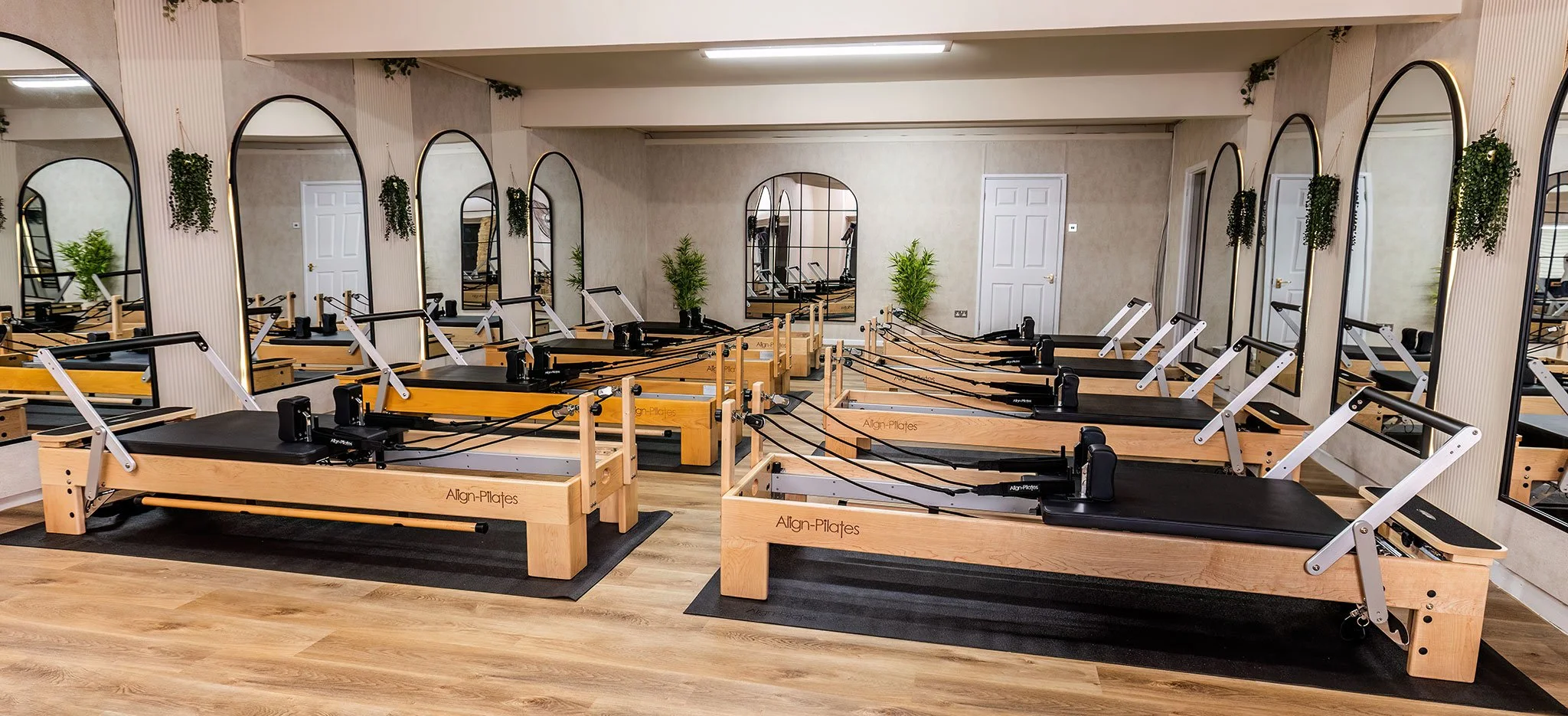Pilates Reformer Market Set to Nearly Double in Value by 2035 : Key Insights for UK Instructors
A recent report from Future Market Insights confirms what many instructors have already observed: Pilates is undergoing a major global resurgence. The Pilates Reformer market, currently valued at USD 7.6 billion in 2025, is expected to soar to USD 16.8 billion by 2035 - an annual growth rate of 8.2%. This dramatic increase is not just a statistical milestone; it signals a shift in how Pilates is practiced, purchased, and perceived - particularly in the UK.
Why Are Pilates Reformers in Such High Demand?
1. The Home Fitness Revolution
Since the pandemic, consumer preference has shifted towards on-demand, home-based Pilates workouts. Compact and foldable reformers are now bestsellers, particularly those that integrate with digital guided classes or subscription platforms. This growth in home users opens the door for UK instructors to offer virtual progression plans, personalised coaching, and curated online memberships.
2. Health & Wellness as a Global Priority
Pilates is increasingly recognised for its role in managing and preventing chronic health issues. As public health concerns such as diabetes, obesity, and hypertension rise, consumers are turning to low-impact, rehabilitative fitness options. The Pilates Reformer, with its emphasis on joint-friendly resistance and posture correction, fits this demand precisely.
3. Celebrity and Millennial Endorsement
Social media influencers and celebrities have positioned Pilates as both aspirational and effective. This visibility has significantly boosted popularity among younger demographics, particularly millennials and Gen Z, who now view Pilates as a cornerstone of a wellness-focused lifestyle.
4. Smart Tech and Direct Sales
The market is also seeing a rise in smart Pilates reformers, connected accessories, and financing models. Manufacturers such as Merrithew and Balanced Body are moving toward direct-to-consumer models, allowing buyers to experience virtual demos and self-guided setups from home.
The UK Pilates Opportunity – and the Challenge
Here in the UK, the industry stands at a pivotal point. While Pilates has been present since the 1970s, it is now entering the mainstream. However, this growth brings risk. Reports of overcrowded, under-supervised “Pilates-as-entertainment” studios in cities like London are raising safety concerns. For UK instructors, this is a wake-up call: quality and safety must scale alongside popularity.
With budget reformers flooding online marketplaces and new at-home users entering the scene, there’s an urgent need for professional guidance. This creates space for hybrid models, offering small-group studio sessions and remote coaching simultaneously.
How UK Instructors Can Stay Ahead of the Curve?
1. Emphasise Safety and Professionalism
Differentiation starts with safety. Conduct proper risk assessments, adopt a robust Health & Safety (H&S) policy, and make credentials visible. Consider the Mbodies Studio Health & Safety CPD, which remains underutilised in the UK instructor community despite being affordable and practical.
2. Engage the Home Fitness Market
Home users need expert guidance. Offer digital support, from mini video libraries to progression programmes. Consider partnering with manufacturers to sell reformers bundled with training packages that maintain quality control.
3. Create Flexible Hybrid Offerings
Clients expect flexibility. Develop offerings that combine studio-based classes with digital sessions, catering to varying schedules and access needs.
4. Educate Your Audience
Combat misconceptions. Many clients are unaware that Pilates is not a high-adrenaline exercise. Reiterate the method’s foundations—control, breath, and progression before complexity.
5. Stay Informed on Industry Trends
Brands like Merrithew, Balanced Body, and Align-Pilates are projected to dominate global sales. Recognise which models are most popular (e.g. SPX Max Plus, Align-Pilates ‘C’ Range) and keep up with technology integrations so you can recommend equipment that aligns with client goals.
Key Market Players to Watch
Merrithew & Align-Pilates (now under Merrithew ownership) – leading in professional-grade studio equipment.
Balanced Body – known for innovation and quality.
Mad Dogg Athletics – developing foldable, space-saving reformers for home use as well as owning Peak Pilates.
Gratz™ Pilates – maintaining heritage in classical-style apparatus.
These brands are pushing direct-to-consumer channels, meaning more home-based users may seek professional support in studios across the UK.
What This Means for the UK Pilates Industry
The bottom line: the Pilates Reformer boom is a UK opportunity, not just a global trend. More users = more demand for professional instruction. However, only those instructors who prioritise quality, education, and adaptability will truly thrive.
Now is the time to:
Update your safety policies and studio practices.
Develop content for at-home users and create hybrid offerings.
Invest in specialist CPD (e.g. Mbodies hybrid Pilates Apparatus Instructor course).
Educate your clients and represent Pilates as a respected, evidence-informed system of movement.
Author: Chris Onslow - Pilates Consultant
Chris Onslow, has run Pilates focussed businesses since 1998. He and his team specialise in supporting Pilates entrepreneurs and business owners. With a rich history of owning and running successful Pilates studios in the UK, and supporting others in Europe and the Middle East, Chris has broad expertise in maximising profitability and optimising operational efficiency. His agency provides top-tier advice on selecting new, pre-owned, and hireable Pilates equipment from renowned brands such as Align-Pilates, Balanced Body or Stott-Pilates/Merrithew. As the founder of Mbodies Training Academy, Chris continues to revolutionise Pilates education, offering premier online and hybrid CPD and qualification courses for Pilates apparatus instruction and special population CPD.



